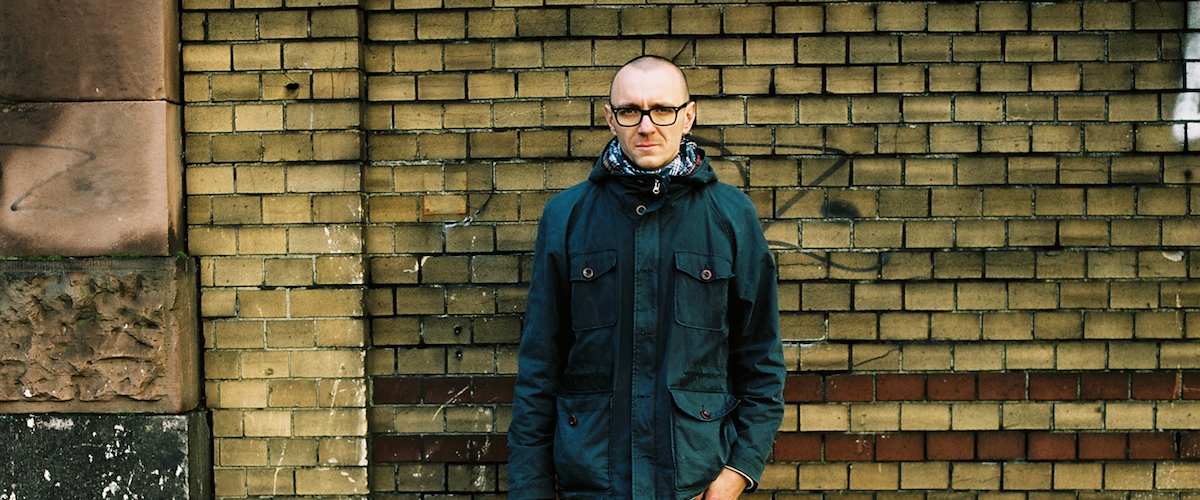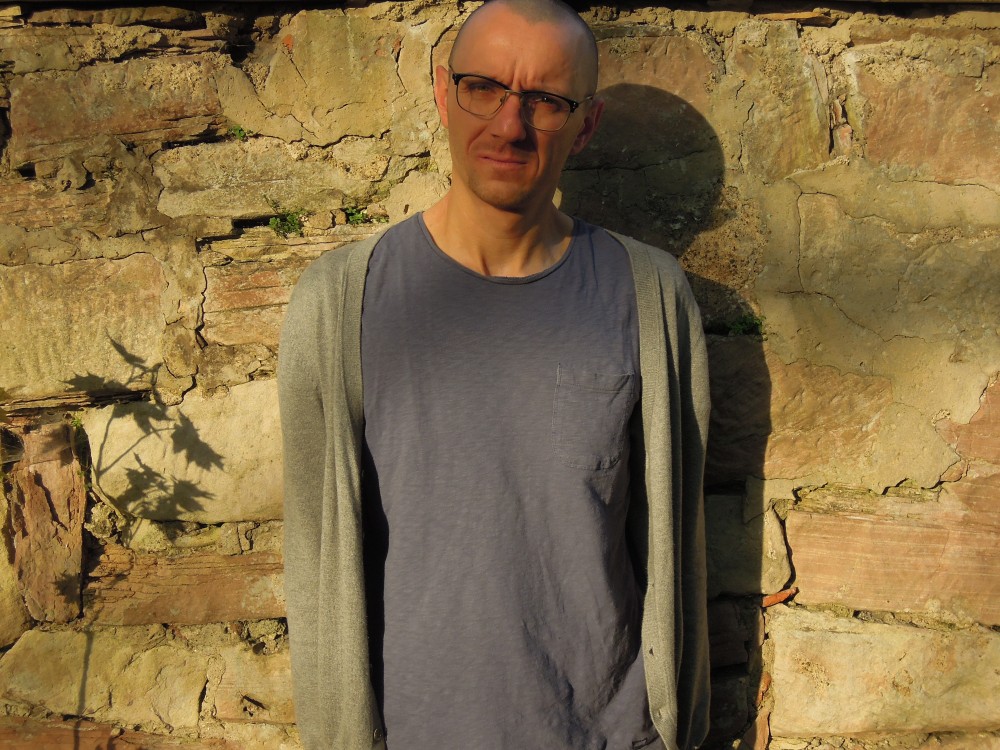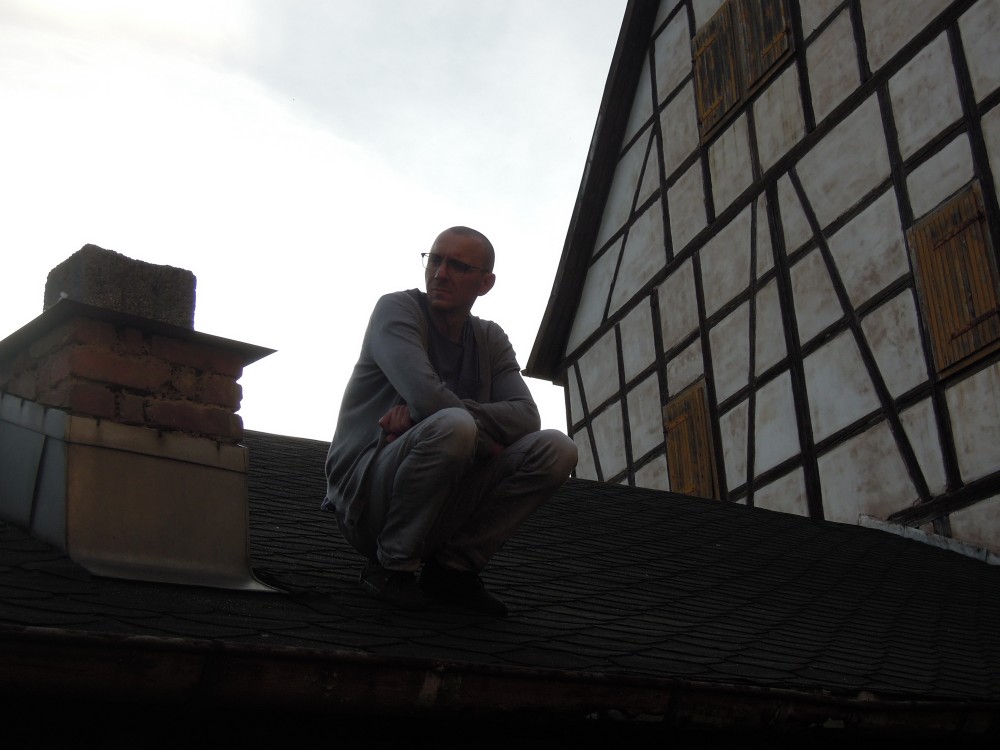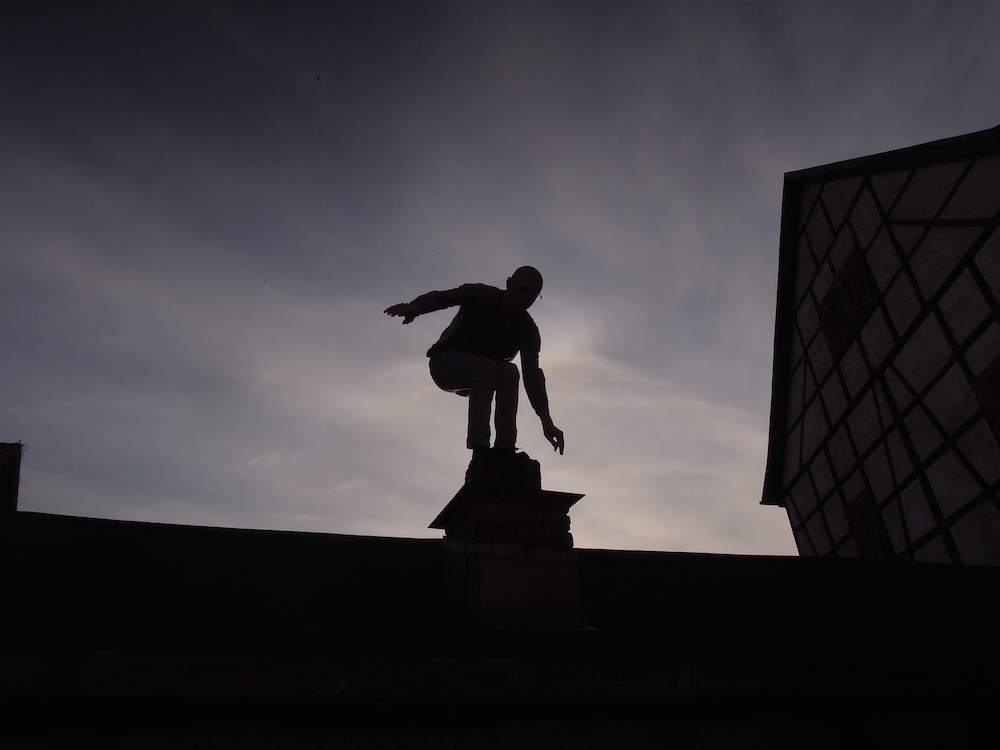Get Familiar: Lowtec
Almost two decades after his debut release as Lowtec, XLR8R meets the German electronic tastemaker.

Get Familiar: Lowtec
Almost two decades after his debut release as Lowtec, XLR8R meets the German electronic tastemaker.

“In my opinion, if you are going to release a record, it’s very important that you should be able to listen to it in 15 years and still think that it’s cool. You should not be ashamed of it later.”
So goes the rationale of Jens Kuhn (a.k.a. Lowtec). It may seem like a fairly self-evident nugget, but no doubt there are troves of producers out there who look back on their former works with at least some disdain. Genres and styles swing in and out of fashion, and only certain pieces will stand the test of time. Fortunately for him, he can be as proud of his works from the latter half of the ‘90s as he is with his more recent output.
For those who aren’t familiar with his work, Kuhn has been a consistent figure in the German electronic scene for about two decades now, sculpting a varied sound that carries a bit of something for everyone. His productions have drifted in and out of dusty house and wistful ambience, and have even gone as far as Detroit-influenced techno. He sits at the head of two labels, which best exemplify his broad style—Workshop Records and Out To Lunch. Both have taken mixed approaches in the electronic music they release, but with one thing in common: quality, understated productions.
With those two imprints under his belt, you’ll still find Kuhn sharing his material via other channels. Earlier this year, a Lowtec EP appeared as the inaugural release on Swedish label Blundar. The untitled four-tracker covers a lot of bases, from ambient techno through to downbeat electronica. It’s also noteworthy for its definite digression away from his more house-oriented recent output, resembling something closer to the machine music of his ‘97 debut album, The Early Portrait. In fact, he reveals that three of the tracks were produced over a decade ago and were put on the back-burner, awaiting the right moment to be distributed. “Those tracks were a bit too electronic for my liking at that point. Back then I was more interested in house sounds. I think that’s always a battle within my music. There are no clear borders, though I think it’s a direction that I would like to take more now.”
As with all of his work, there are solid foundations to the release, underpinned by a relationship that began many years ago. “The guy who founded the label is an old friend, a Colombian guy living in Malmö. A decade ago he did a Workshop mix on Soundcloud—a two-hour mix purely of Workshop records, called Working with Workshop. It’s been planned for a long time, and now it has actually happened.”
From our brief conversation, it’s striking how much everything in Kuhn’s professional life revolves around interpersonal relations. At the most base level, this starts with his home life. We meet the day after his Workshop showcase at Berlin’s Tresor (which featured Benjamin Brunn, Even Tuell and Richard Zepezauer), in a jam-packed playground. His son has just disappeared to buy some comics, and he awaits his return. “I’ve got to keep the balance between family, job and music. It can be difficult sometimes, but I’ve dealt with it for ages.” Aside from raising his child, Kuhn juggles a 40 hour a week job in car development—a role he’s been in almost as long as his music career—back in his hometown of Schmalkalden in central Germany. “I draw inspiration from travelling mainly, and from being in cities. When I go back home, I calm down and start making music.”


His setup is a natural, healthy limitation on his music: on average, you can expect one or two Lowtec releases a year, a slow but steady trickle. As for live performances, it takes a more substantial toll. “Last year I was playing one weekend a month, but this year it’s a lot more rare. Since the beginning of this year, I’ve only played a few times. I’ve refused a lot of gigs because of my daytime job, and I’m very busy with other new projects at the moment. It’s just one of the reasons why I play very seldomly. I don’t want to do more gigs—it’s totally OK the way things are for me at the moment.”
Keeping that safe distance from the wider music world, he still consistently makes a greater impact than many other more prolific producers. Last year, we celebrated the relaunch of Out To Lunch—the first of the Kuhn-headed imprints, it was originally set up in ‘96, before wrapping up business for a decade in the mid-noughties. In a manner typical of all his endeavors, the revival was totally unobtrusive. The EP came from the then unknown act The Hangout Project (which he clarifies as being two old friends of his), dropping into Hard Wax shelves without any fuss or promotion. Soon after came the diverse, zany electronica of Black Point, which established the undertaking as being back for good. “I started it up again because it felt like the right time to bring new stuff, rather than just re-releases of the older records. It’s all based around my gut feeling—some tracks might not fit to Workshop. The Black Point record was a bit too electronic for Workshop, so it came out via Out To Lunch instead.”
It had all begun as the work of a few young friends. Inspired by the rave movement, Kuhn had been quick to get onto dance music. “It was very important to me. I didn’t want to just be a consumer, but I wanted to put out stuff from the very beginning.” On that tip, during the mid-to-late-90s, a cluster of fresh labels emerged around Leipzig’s new R.A.N.D. Muzik pressing plant: alongside Out To Lunch were United States of Mars, Science City and 3B. Amongst the group were the likes of Marvin Dash (who had also worked collaboratively with Kuhn as Lowtec for his first trio of releases), Alex Krüger (then releasing under Dub Taylor or Korsakow, now better known as Tigerskin), Benjamin Brunn, Krok, Even Tuell, and the current pressing plant head, Gunnar Heuschkel. Kuhn handled the general business side of things, though he stresses that there was no strict division in labour, rather plenty of overlap and interplay between them all.
It has the hallmarks of a bulky, widespread operation, though in reality the nucleus of the consortium could be found in one student home: “Marvin I knew from the beginning—we must have met back in 1990. Some of the other guys I studied with, and they lived together with me. We built a studio together. We didn’t have much money, so everyone bought one piece, so that we could make music together. I think we all met in the early parties, though some I met through studying too.”
It’s difficult to imagine that they could have had any idea how far things would go for them back then. For some, the musical journey would wrap up sooner than it would for others—Kuhn was left in charge of the collective of imprints in the early noughties as part of the group packed it in, and eventually chose to shut down proceedings in 2005. It was to be a blessing in disguise in some respects however, as it opened the doors to the Workshop. Following on from some casual brainstorming with Paul David Rollman (a.k.a. Even Tuell), a friend with whom he had worked on some Out To Lunch projects, things were quick to get back on the go for Kuhn. “We had been discussing the idea of doing a label just for our music. After I closed up Out to Lunch and all its associates, I hadn’t wanted to start again. We had a chat together with David Moufang [a .k.a. Move D href=”https://xlr8r.com/news/2014/10/move-d-preps-second-ep-of-archival-material-for-off-minor/”], and decided that we ought to make something happen. No one had any time though. Eventually I got the first three tracks together, which would become Workshop 001, and I started it up. The others jumped on the train, and we carried on with it together after I had made the first record as a starting point!”
As with all his other enterprises, Workshop operates within a close circle. Between Kuhn and his partner Rollman, they’ve put out records by the likes of Magic Mountain High and Move D, and helped kick off the careers of Kassem Mosse and Willow, all of whom were friends ahead of their business relations. At the time of writing, their next chapter is set to come from Ibrahim Alfa—an archival LP of lost material, which had originally been destined for release by Source Records back in the ‘90s. Everything is linked somehow, with a roster of artists connected in various ways through his middle point. When we get onto the matter of label recruitment, and how they choose their artists, his brow furrows deeply and he trails off into a contented reverie. “I think about 95% of the Workshop records are made up of music from friends of ours, or friends of friends. It’s not impossible for an outsider to come in, but it is pretty hard I think, just because we have so many friends making music. There’s already so much stuff on the shelves that needs to be released, but we just have no time.”
The same goes for the finer details—the label’s distinct visual identity has been shaped by only a handful of people, too: “I do the graphics, or sometimes Paul David does them. My girlfriend has created some of the stamps too.” There’s little that is overtly Workshop about their brown-sleeved records—they bear just a simple stencil (calculators and rotary-dial telephones have adorned recent EPs), as a bit of light-hearted decoration. It’s as a result of their level of command over every intricacy, that after just over 20 releases it’s become one of the more easily recognisable, tastefully curated brands out there.
His label efforts aside, on a personal level it seems like Kuhn is going to be in it for the long haul. He’s deeply embedded in that network of musical friends, yet he is also comfortably tucked away from it all on a day-to-day basis in the peace of his Schmalkalden residence. Things move at exactly his own pace, and have done for the past couple of decades. His rare output makes what does go public yet more precious, and the unpredictably of the end product is all part of the magic. “I’m not sure in what direction I’m going to move towards. Everything is possible, as usual.”

A few days after our meeting, Kuhn shared a photo on Facebook of a book bearing a quote by legendary jazz musician Miles Davis: “Man, sometimes it takes you a long time to sound like yourself.” Apparently Lowtec is still plodding along the long and winding road to settling on a singular style. There may never be that end-point; If anything, we hope there isn’t, and that his output continues to grow ever more colorful.
Banner photo by: Benjamin Brunn
All other photos by: Susann

